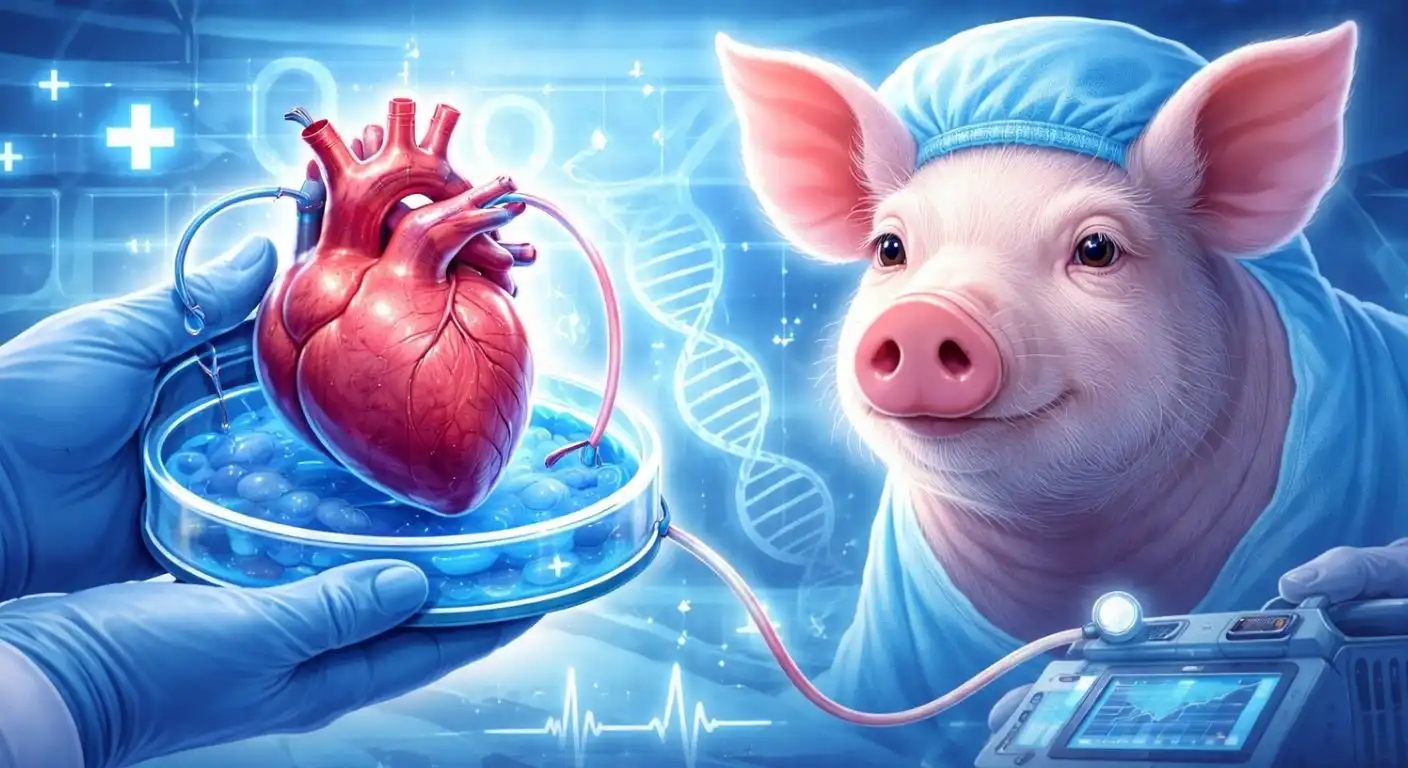Key Points
- Xenotransplantation involves the transplantation of animal organs into humans, which is approaching clinical reality due to rapid advances in genetic engineering.
- Pigs are prime candidates for xenotransplantation due to their biological compatibility with humans.
- CRISPR Gene-Editing technology enables the modification of pig genomes, reducing the risk of immune rejection.
- Xenotransplantation could also expand access to tissues for skin grafts, corneal transplants, and other therapies.
In a groundbreaking stride towards overcoming the global organ shortage crisis, the field of xenotransplantation is poised for a transformative era. With rapid advances in genetic engineering and medical research, the once-futuristic concept of using animal organs for human transplantation is becoming a tangible reality.
Xenotransplantation involves the transplantation of organs, tissues, or cells from one species to another. It holds immense promise for addressing the critical shortage of transplantable organs. Pigs, in particular, have emerged as prime candidates due to their biological compatibility with humans. Recent advances in genetic engineering have enabled scientists to modify pig organs, thereby reducing their susceptibility to rejection by the human immune system.
Researchers have successfully employed CRISPR gene-editing technology to modify pig genomes, eliminating specific antigens that trigger human immune responses. This crucial advancement has significantly reduced the risk of organ rejection, a longstanding challenge in xenotransplantation. As a result, pig organs are approaching compatibility levels that could revolutionize organ transplantation, saving countless lives.
The potential impact of xenotransplantation extends beyond addressing organ shortages; it also promises to enhance the availability of tissues for various medical applications. Skin grafts, corneal transplants, and other tissue-based therapies may become more accessible, ushering in a new era of medical treatments and interventions.
However, the field is not without its ethical and regulatory considerations. Striking a balance between scientific evolution and ethical considerations remains paramount. Researchers and policymakers are diligently addressing critical aspects to ensure the well-being of animals used in xenotransplantation studies and addressing concerns about potential zoonotic diseases.
The successful implementation of xenotransplantation could reshape the landscape of organ transplantation, offering hope to patients languishing on waiting lists. Governments, research institutions, and biotech companies are collaboratively navigating regulatory frameworks, ethical guidelines, and public perceptions to facilitate the responsible development of this revolutionary medical technology.
As clinical trials progress and the scientific community continues to refine xenotransplantation techniques, the prospect of routine pig-to-human organ transplantation approaches reality. The coming years promise to witness xenotransplantation emerge from scientific speculation to a practical, life-saving solution, marking a paradigm shift in medicine.





